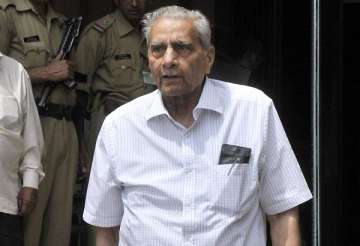New Delhi, Aug 8: The Supreme Court was today told that the route of “auction” has been found to be the best method for alienation of scarce natural resources which will help in curbing largescale corruption in all sectors including mining and coal.
The NGO, Centre for Public Interest Litigation (CPIL) submitted before a five-judge Constitution Bench headed by Chief Justice S H Kapadia that the mode of auction in disposal of natural resources to the private sector would help in maintaining the public trust and public interest.
“The trust of the people and public interest is paramount in the allocation of scarce natural resources and the route of auction has been found to be the only route to curb mass scale corruption,” CPIL's counsel Shanti Bhusshan contended.
He said series of recent CAG reports have pointed out irregularities and siphoning of money in the allocation of natural resources and the apex court February 2 judgement on the 2G spectrum which has held auction as the only method that can meet the criteria of transparency in allocation of natural resources should not be disturbed.
Arguing before the Bench, also comprising justices D K Jain, J S Khehar, Dipak Mishra and Ranjan Gogai, the CPIL said the verdict of the two-judge bench could not be restricted to particular natural resources.
Bhushan had yesterday said the 2G spectrum verdict has put a “break on corruption”.
He was arguing that Government's Presidential Reference arising out of the 2G verdict should be returned unanswered by the apex court.
The verdict had held as illegal and unconstitutional the First-Come-First-Serve (FCFS) policy and favoured allocation of natural resources in all sectors through the auction route.
The reference covers various issues arising out of the apex court's 2G spectrum case verdict and they include whether auctioning natural resources across all sectors is mandatory and if the verdict in the 2G case can be given retrospective effect for radio waves granted since 1994.
The court had on May 11 issued notices and sought replies from various parties, including the state governments and the FICCI and the CII on behalf of the private industries, besides the NGO and Janata Party President Subramanian Swamy.
It was on the petitions by CPIL and Swamy that a bench of justices G S Singhvi and A K Ganguly (since retired) had delivered its February 2 verdict, cancelling 122 telecom licences holding that the FCFS policy was illegal and unconstitutional.
Latest India News
